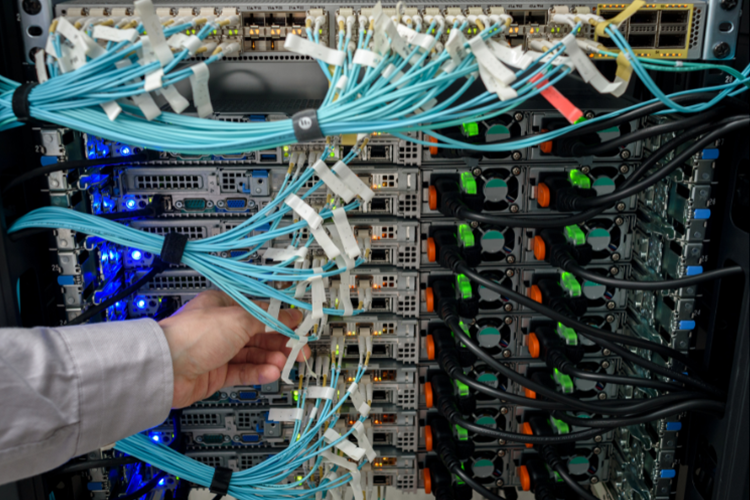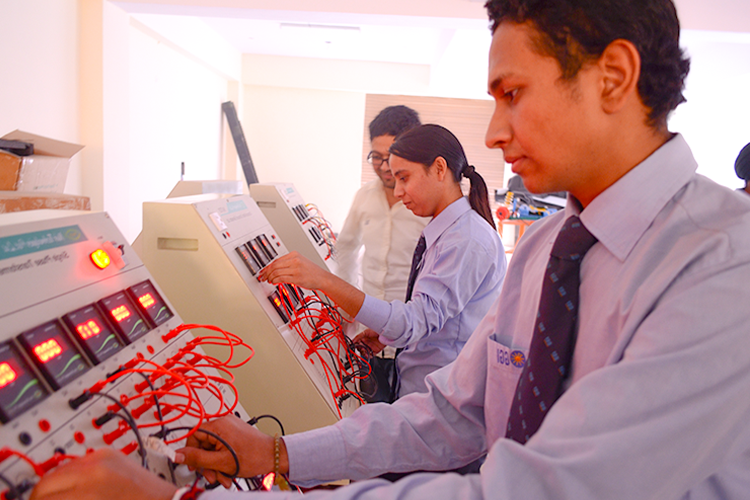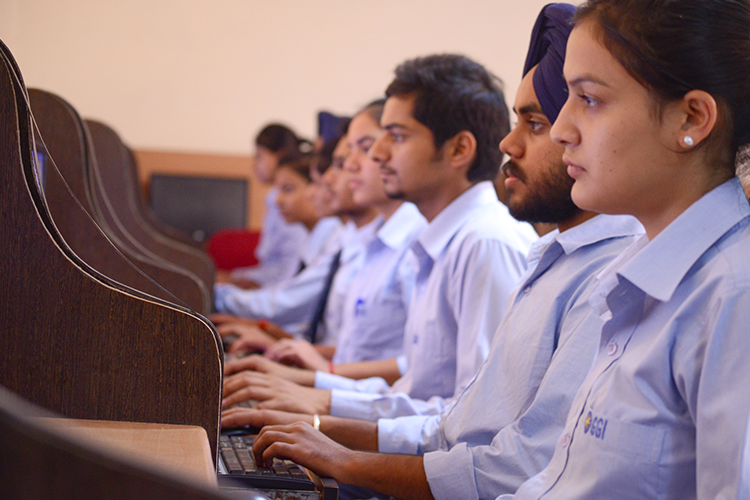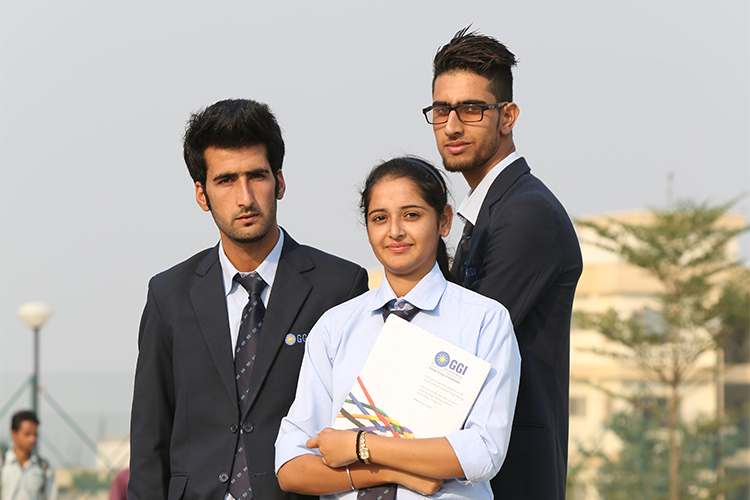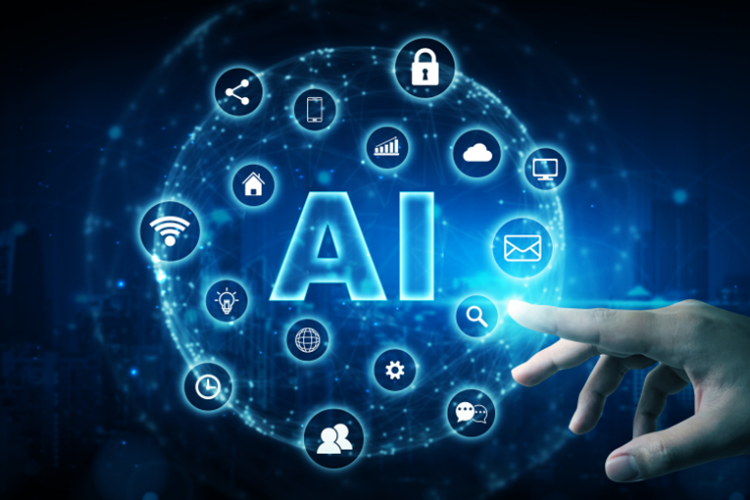Course Structure
The B.Tech Computer Science and Engineering (Data Science) program at Gulzar Group of Institutions offers a comprehensive curriculum spanning eight semesters.
Covers calculus and linear algebra fundamentals, focusing on functions, limits, derivatives, integrals, and matrix operations, essential for problem-solving in computer science.
Provides foundational knowledge in programming, algorithms, data structures, computer architecture, and software engineering, preparing students for advanced studies and professional careers in computer science and engineering.
Introduces the principles of object-oriented programming, including classes, objects, inheritance, polymorphism, and encapsulation, enabling students to design and develop modular, reusable, and maintainable software.
Electrodynamics and Optics covers electromagnetism principles, Maxwell’s equations, electromagnetic waves, and optics phenomena like reflection, refraction, and diffraction, crucial for understanding light and electromagnetic wave behaviour in engineering and physics.
Optimization Techniques encompasses methods to maximise or minimise functions under constraints. It involves algorithms like gradient descent, linear programming, and evolutionary strategies applied in engineering, economics, and operations research for efficient problem-solving.
Introduction to data organisation methods such as arrays, linked lists, stacks, queues, and trees, vital for efficient data management and retrieval.
Covers principles of digital systems, including Boolean algebra, logic gates, and sequential circuits, foundational for understanding computer hardware design.
Discrete Structures deals with mathematical structures that are fundamentally discrete rather than continuous. Topics include set theory, logic, relations, functions, graphs, and combinatorics, essential for algorithm development and computer science applications.
Fundamentals of Electronics introduces basic concepts and components in electronic circuits, covering semiconductors, diodes, transistors, amplifiers, oscillators, and digital circuits essential for applications in communication and control systems.
Digital Electronics in B.Tech CSE (Data Science) covers logic gates, flip-flops, and digital circuits, essential for designing and understanding computer hardware and digital systems. It forms a crucial foundation.
Data Structures & Algorithms focuses on efficiently organising and processing data. It covers key concepts like arrays, linked lists, sorting, and searching algorithms, essential for solving complex problems.
Introduces OOP concepts using C++ or Java, including classes, objects, inheritance, and polymorphism, enhancing software design and development skills.
Mathematics-III (Probability and Statistics) explores concepts like probability distributions, statistical inference, and data analysis techniques. It provides essential tools for analysing uncertainty and making data-driven decisions in various fields.
Foundation Course in Humanities introduces students to key concepts in culture, society, and human values. It encourages critical thinking, ethical reasoning, and a broader understanding of human experiences and social dynamics.
Digital Electronics Lab provides hands-on experience with designing and testing digital circuits. Students work with components like logic gates, flip-flops, and counters, reinforcing theoretical concepts and developing practical skills in digital system design.
Data Structures & Algorithms Lab offers practical experience in implementing and analysing data structures like arrays, linked lists, and trees. Students develop and test algorithms for sorting, searching, and problem-solving, enhancing their coding and debugging skills.
Object-Oriented Programming Lab focuses on applying OOP concepts like classes, inheritance, and polymorphism through hands-on coding. Students design and implement software projects, reinforcing their understanding of modular and reusable code.
IT Workshop provides hands-on training in essential IT skills, including software installation, hardware basics, and troubleshooting. It also covers tools and techniques for effective use of operating systems, networks, and basic programming.
Discrete Mathematics focuses on mathematical structures like logic, set theory, combinatorics, and graph theory. It is essential for computer science, offering tools for problem-solving and algorithm design.
Computer Organization & Architecture covers the design and structure of computer systems, including hardware components, CPU architecture, memory hierarchy, and input/output systems. It provides insights into how computers execute instructions and manage resources.
Operating Systems manages computer hardware and software resources, covering process management, memory management, file systems, and security. It ensures efficient and secure operation of computing systems.
Design & Analysis of Algorithms involves creating and evaluating algorithms for efficiency and effectiveness. It covers techniques for solving problems, including algorithm design, complexity analysis, and optimization strategies.
Universal Human Values 2 explores ethical principles, moral values, and the role of human values in fostering personal and social well-being. It emphasises respect, integrity, and responsible behaviour in various contexts.
Environmental Sciences studies ecosystems, environmental issues, and sustainability. It covers topics like pollution, resource management, climate change, and conservation, aiming to understand and address human impacts on the environment.
Computer Organization & Architecture Lab provides hands-on experience with computer hardware and system design. Students work with CPUs, memory, and input/output systems, implementing and testing concepts from computer architecture.
Operating Systems Lab offers practical experience in managing computer resources. Students work on tasks like process scheduling, memory management, file systems, and system calls, reinforcing theoretical concepts through hands-on exercises.
Design & Analysis of Algorithms Lab provides practical experience in implementing and testing algorithms. Students work on designing efficient algorithms, analysing their complexity, and solving problems through coding and experimentation.
Statistical Computing Techniques using R focuses on applying statistical methods and data analysis using the R programming language. It covers data manipulation, statistical modelling, and visualisation to derive insights from data.
Database Management Systems (DBMS) covers the design, implementation, and management of databases. It includes topics like data models, query languages (e.g., SQL), transaction management, and database architecture to efficiently store and retrieve data.
Formal Language & Automata Theory explores theoretical foundations of computation. It covers topics like formal languages, automata models (finite, pushdown, and Turing machines), and computability, providing insights into language recognition and computational limits.
Programming in Python covers the fundamentals of Python language, including syntax, data structures, functions, and object-oriented programming. It emphasises practical coding skills for software development, scripting, and data analysis.
Artificial Intelligence (AI) involves creating systems that can perform tasks requiring human intelligence. Topics include machine learning, natural language processing, computer vision, and robotics, focusing on developing algorithms that enable intelligent behaviour.
Elective-I allows students to choose from specialised courses based on their interests. This elective typically offers in-depth study in a specific area related to their field, providing an opportunity to explore advanced or niche topics.
Constitution of India & Essence of Indian Traditional Knowledge covers the framework of India’s legal system and government alongside the rich cultural heritage and traditional wisdom of the country. It combines an understanding of democratic principles with the exploration of ancient practices and philosophies.
Statistical Computing Techniques using R Lab provides hands-on experience with data analysis using R. Students apply statistical methods, data manipulation, and visualisation techniques to solve real-world problems and interpret data insights.
Database Management Systems Lab offers practical experience in designing, implementing, and managing databases. Students work with database management systems, perform tasks like querying, data manipulation, and schema design to reinforce theoretical concepts.
Programming in Python Lab provides hands-on experience in coding with Python. Students work on practical exercises involving syntax, data structures, functions, and applications to develop and refine their programming skills.
Artificial Intelligence Lab offers hands-on experience in implementing AI algorithms and models. Students work on projects involving machine learning, data analysis, and intelligent system design, applying theoretical concepts to real-world problems.
Elective-I Lab provides practical experience in a specialised area chosen as an elective. Students work on projects or experiments related to their selected elective, applying theoretical knowledge to hands-on applications and problem-solving.
Industrial Training offers practical experience in a real-world work environment, allowing students to apply academic knowledge to industry-specific tasks. It includes exposure to professional practices, processes, and technologies relevant to their field of study.
Data Mining and Data Warehouse covers techniques for extracting insights from large datasets and managing data storage. It includes methods for data analysis, pattern recognition, and the design and implementation of data warehouses for efficient data retrieval and reporting.
Data Analytics using R focuses on analysing and interpreting data with the R programming language. It includes techniques for data manipulation, statistical analysis, and visualisation to uncover insights and support decision-making.
Elective-II offers students the chance to choose a specialised course based on their interests or career goals. It allows for deeper exploration into advanced or niche topics relevant to their field of study.
Elective-III provides students with the opportunity to select an additional specialised course, further exploring advanced or niche topics. It allows for customization of their academic path according to individual interests and career aspirations.
Open Elective-I allows students to choose from a broad range of courses outside their core curriculum. It offers flexibility to explore subjects of personal or professional interest, enhancing their overall academic experience.
Project-1 involves applying theoretical knowledge to a practical problem or research topic. Students work on individual or group projects, focusing on problem-solving, design, implementation, and analysis to develop real-world solutions or innovations.
Data Mining and Data Warehouse Lab provides hands-on experience with techniques for extracting insights from large datasets and managing data storage. Students work on tasks like data analysis, pattern recognition, and designing data warehouses.
Data Analytics using R Lab offers practical experience in analysing and interpreting data using the R programming language. Students engage in tasks like data manipulation, statistical analysis, and visualisation to derive actionable insights.
Elective-II Lab provides practical experience in a specialised area chosen as part of Elective-II. Students work on hands-on projects or experiments related to their elective subject, applying theoretical knowledge to real-world scenarios.
Elective-III Lab provides hands-on experience in a specialised area chosen for Elective-III. Students work on practical projects or experiments related to their elective topic, applying theoretical concepts to real-world problems.
Compiler Design involves creating compilers by learning lexical analysis, syntax analysis, semantic analysis, optimization, and code generation to translate programming languages into executable code.
Computer Networks covers the principles and technologies for designing, implementing, and managing networks. Topics include network protocols, architectures, security, and data transmission methods for effective communication between computers.
Open Elective-II allows students to choose from a diverse range of courses outside their core curriculum. It provides an opportunity to explore new fields and broaden their academic and professional horizons.
Elective-IV offers students the opportunity to select a specialised course of interest in their field of study. It allows for further exploration of advanced or niche topics, enhancing their academic and career development.
Elective-V provides students with the chance to choose an additional specialised course, further tailoring their academic experience to their interests and career goals. It offers deeper exploration into advanced or niche subjects.
Project-II involves advanced application of theoretical knowledge to complex problems or research topics. Students undertake individual or group projects, focusing on detailed problem-solving, design, implementation, and analysis to develop practical solutions or innovations.
Elective-IV Lab provides hands-on experience in a specialized area chosen for Elective-IV. Students work on practical projects or experiments related to their elective topic, applying theoretical concepts in real-world scenarios.
Elective-V Lab offers practical experience in a specialised area chosen for Elective-V. Students engage in hands-on projects or experiments related to their elective subject, applying theoretical knowledge to real-world applications.
Semester Training provides practical experience in a professional environment, allowing students to apply academic knowledge to real-world tasks. It includes exposure to industry practices, technologies, and processes relevant to their field of study.





























